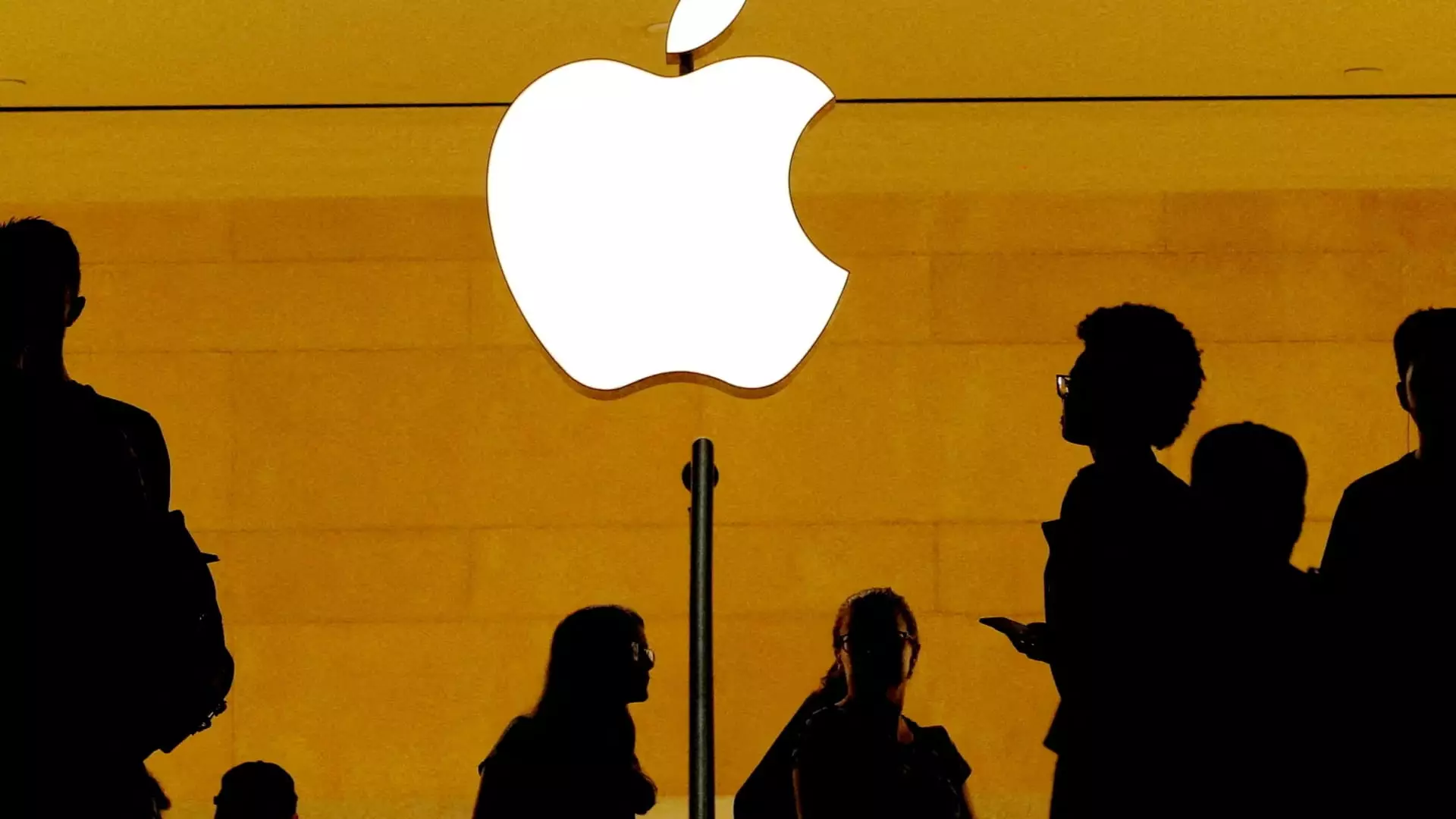In a landscape where technology stocks have often been at the mercy of geopolitical tensions and government policies, a fresh wave of optimism has surged through the markets, particularly for giants like Apple. With a more than 2% increase in stock value, Apple’s current ascent cannot simply be attributed to its innovative prowess or consumer loyalty. The recent decision by the Trump administration to exempt a range of electronic devices—effectively removing a significant roadblock of tariff complications—is a game-changer. Apple, whose production footprint is heavily interwoven with China, stands to benefit immensely. This isn’t merely a strategic pivot; it’s a lifeline for a company that has begun to show signs of vulnerability amid waning growth narratives.
The irony lies in the fact that while this tariff reprieve sends waves of relief through Wall Street, it does not absolve Apple from the more daunting realities of a slackening global economy. It brings into question whether the current stock surge can be sustained. In these times, when analysts often oscillate between pessimism and cautious optimism, it raises legitimate concerns: is this a true recovery, or merely a temporary reprieve built on shaky foundations?
Chinese Tech: The Unexpected Uplift
Alongside Apple, U.S. shares of Chinese tech companies have risen impressively; e-commerce behemoths such as Alibaba and PDD experienced gains exceeding 5%. This newfound bullish momentum is largely owing to the same tariff exemptions that buoyed tech giants in the U.S. However, it would be foolhardy to consider this as a simple boon for these firms without further context. U.S.-China trade relations have been fraught with complications, and any sign of goodwill from Washington could be short-lived. The underlying economic tensions remain; thus, investors must brace for the possibility of renewed conflict, particularly as these stocks ebb and flow with political winds.
And yet, the growth of companies like JD.com and Baidu does reflect a more complex issue: a burgeoning Chinese consumer market that is increasingly resilient. The dynamics of tech in both nations are changing, and stakeholders will need to scrutinize how government policies affect not just immediate stock performance but also long-term viability.
Pioneering Technologies and Defense Sector Gains
Turning our attention to defense technology, Palantir Technologies has seen a robust 4% stock increase following NATO’s acquisition of its AI-enabled warfighting system. The implications of integrating artificial intelligence in military operations present a fascinating crossroads for defense technology firms. Not only does this partnership signal a renewed commitment toward leveraging advanced tech for strategic purposes, but it also opens a pathway for future investments in military innovations.
As defense budgets in NATO countries continue to swell, there’s no question that companies like Palantir stand to harvest immense benefits. However, this relationship also demands careful consideration from an ethical perspective. The proliferation of military technologies must be balanced against human factors and societal implications, and stakeholders in this field must navigate these waters with accountability.
Pharma and Investment Banking: A Quick Turnaround
In the pharmaceutical sector, Viking Therapeutics noted a staggering 8% surge as speculation brewed regarding Pfizer’s decision to halt its weight-loss drug trial following serious safety concerns. This highlights a prevailing trend in the industry where pharmaceutical companies are under increasing scrutiny, not only for efficacy but also for potential side effects. While Viking emerges as a potential player in the GLP-1 space, it raises important questions about the balance between innovation and safety—especially in markets hungry for health solutions.
Similarly, Goldman Sachs demonstrated resilience with a 2% rise fueled by robust earnings that outperformed Wall Street’s expectations. Such data points crystallize the notion that despite macroeconomic headwinds, well-managed financial institutions can still create value. The ability of Goldman Sachs to maintain profitability is a blueprint for others earmarked within this volatile sector.
Hardware Sector Insights: Dell and Intel’s Trajectories
The hardware realm also offers interesting developments, particularly with Dell Technologies rising over 4% after tariff rollbacks. This fortunate turn of events invites broader questions regarding how tech hardware firms adapt to the ever-shifting regulatory landscape.
Likewise, Intel’s decision to offload its majority stake in Altera for a solid return marks a strategic realignment that may resonate deeply within the tech community. The financial implications tied to this decision speak to Intel’s overarching strategy to streamline operations amidst fluctuating chip demands.
In this nuanced narrative of tech stocks, the interplay between government policy, market resilience, and ethical considerations will shape the trajectory of the industry. Each player in the field must deftly navigate these currents, as the stakes continue to rise.

